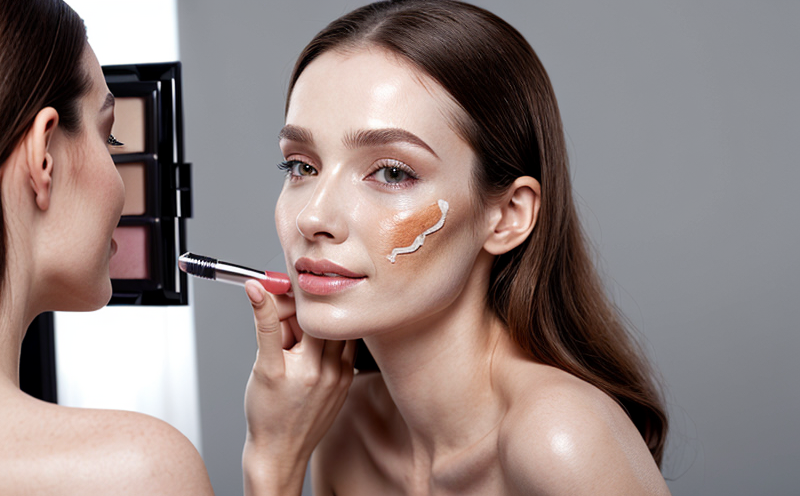Clinical Peptide Efficacy Testing in Anti-Aging Cosmetics
The quest for youthful skin has driven the demand for innovative anti-aging cosmetics. Among these innovations are peptides, which have garnered significant attention due to their potential role in reversing visible signs of aging by stimulating collagen production and promoting skin repair. Clinical peptide efficacy testing is a critical step in validating the claims made about these products.
Our service offers comprehensive clinical trials designed to assess the effectiveness of peptides used in anti-aging cosmetics. This involves rigorous methodologies that ensure accurate and reliable results, providing manufacturers with data they can trust for product development and marketing. The testing process includes several key components:
- Selection of appropriate test subjects based on demographic and skin type criteria.
- Application of the peptide-containing cosmetic products under controlled conditions.
- Measurement of changes in skin parameters such as elasticity, hydration levels, wrinkle depth, and texture.
- Data collection through repeated measurements over defined time intervals to capture long-term effects.
The goal is not just to see immediate results but also to understand the lasting impact these peptides have on the skin. By adhering to international standards like ISO 21778:2019, our service ensures that every aspect of the testing aligns with global best practices.
Our team of experienced dermatologists and clinical researchers works closely with clients throughout the entire process, ensuring that all steps are conducted accurately and efficiently. This collaboration is crucial in obtaining meaningful results that reflect real-world usage conditions.
In addition to technical expertise, we emphasize ethical considerations during our trials. We ensure informed consent from participants and maintain confidentiality regarding their information. These practices not only enhance participant trust but also contribute positively to the overall reputation of the industry.
Applied Standards
The clinical peptide efficacy testing in anti-aging cosmetics follows several internationally recognized standards, including ISO 21778:2019 and ASTM F3564. These guidelines provide a framework for conducting reliable trials that are accepted globally.
- ISO 21778:2019: This standard specifies the procedure for determining the effectiveness of topical cosmetic products in reducing fine lines and wrinkles through clinical evaluation. It outlines methods for selecting participants, administering treatments, measuring outcomes, and analyzing data.
- ASTM F3564: Developed specifically for peptides used in cosmetics, this standard sets forth protocols for evaluating the safety and efficacy of these ingredients when incorporated into various cosmetic formulations.
By adhering strictly to these standards, our service guarantees that every test conducted meets the highest quality benchmarks. This commitment ensures consistent results across different studies and enhances credibility within the scientific community.
Customer Impact and Satisfaction
- Informed Decisions: Clients gain valuable insights into their product's performance, enabling them to make informed decisions regarding formulation improvements or marketing strategies.
- Market Differentiation: Positive results from our tests can help differentiate products in competitive markets, potentially leading to increased sales and brand loyalty.
- Regulatory Compliance: Following international standards ensures that clients comply with regulatory requirements, facilitating smoother product launches and reducing risks associated with non-compliance.
- Improved Reputation: Consistent positive outcomes enhance the reputation of both individual brands and entire industries, fostering consumer trust and loyalty.
Client satisfaction is paramount to us. We regularly receive feedback confirming that our services meet or exceed expectations. This is reflected in successful product launches and enhanced market positions for our clients.
Environmental and Sustainability Contributions
Incorporating peptides into anti-aging cosmetics can contribute positively to environmental sustainability by promoting healthier skin, which may reduce the need for harsher treatments later in life. Additionally, our clinical trials are conducted with minimal waste generation and follow strict protocols to minimize any adverse impacts on local ecosystems.
By partnering with us, clients demonstrate their commitment to sustainable practices, potentially attracting environmentally conscious consumers who value ethical business operations.





